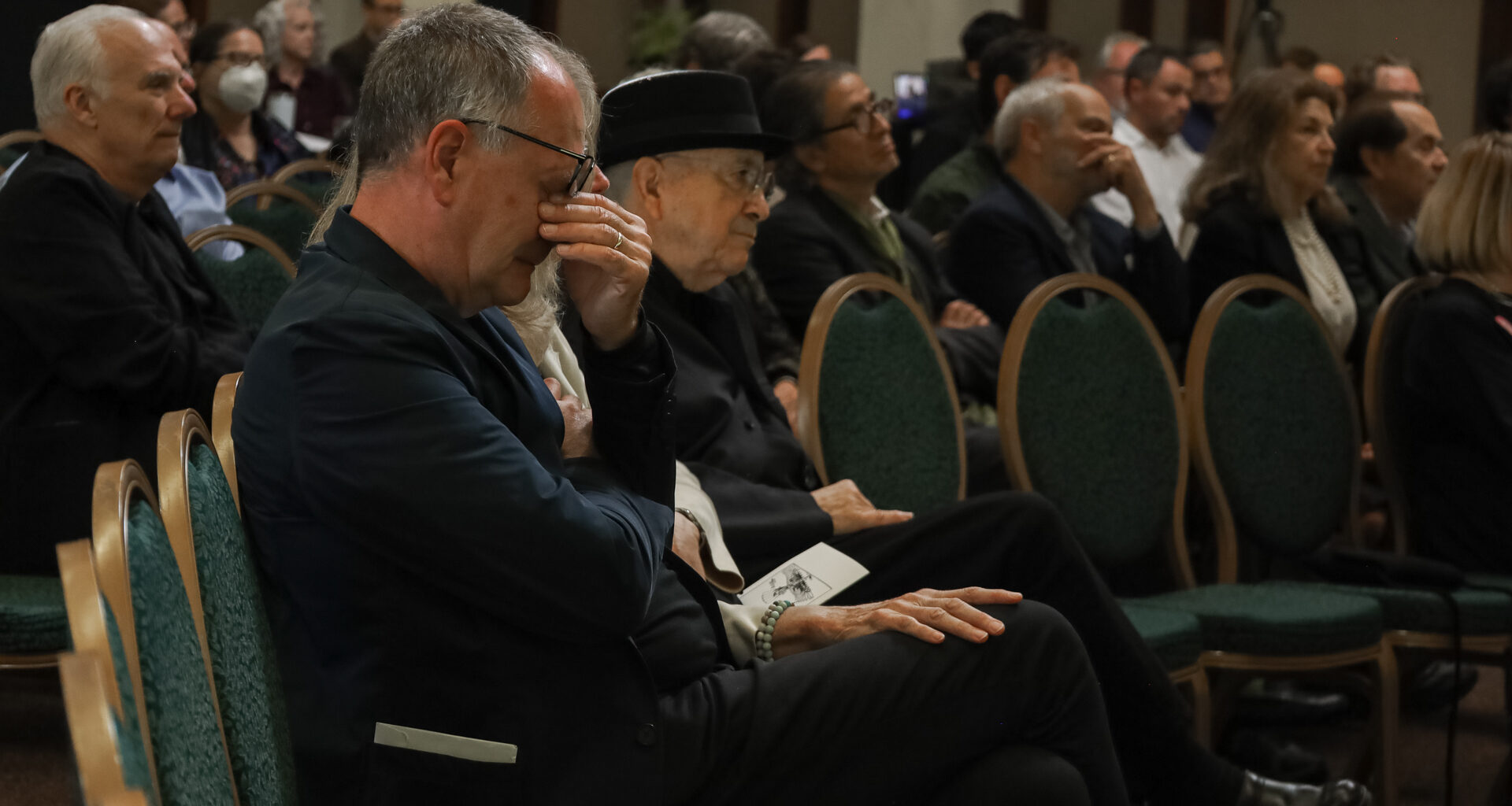Rays of sunlight pushed past overcast clouds on the morning of Saturday, Oct. 25, adorning the inside of Connally Ballroom at the Etter-Harbin Alumni Center, where friends and family gathered to remember the late professor Michael Benedikt, who passed away in early August. The reception invited professors and alumni to speak on Benedikt’s character and his almost 50-year contribution to the School of Architecture.
“Michael Benedikt — colleague, teacher, mentor, impresario, provocateur, friend,” said Heather Woofter, Dean of the School of Architecture.
The Australian native began his teaching career at UT in 1975 and over the past half-century, authored more than 100 published articles and edited chapters. Until 2020, Benedikt directed the University’s Center for American Architecture and Design, contributing to and editing 14 of the center’s volumes. Founding director of center and professor Larry Speck arrived at the School at the same time as Benedikt, the term “baby architecture professors” to signify the start of their careers.
“From the very moment he came here, he was just a delight to be with,” Speck said. “There was this change from this young provocative kid to a real sage, someone you just saw the authority in his face.”
Many speakers, such as Speck and Elizabeth Danze, described Benedikt’s diction as fueled by wit and wonder. Danze, a professor of architecture, said his teaching demanded careful thought and a lasting impression.
“He challenged us not to perform,” Danze said. “But to think, to look and to see, — to approach architecture not merely as the making of buildings but as something greater — the pursuit of meaning and significance in life itself.”
Kevin Alter, Benedikt’s close friend and office neighbor for over 25 years, said Benedikt loved buildings. He looked beyond their structural capacity, aiming to understand who we are and the spaces we occupy. Colleagues and alumni of the School of Architecture commented, during their speeches, on his devotion to understanding the moral weight of architecture. Alter, a colleague and a professor of architecture, said Benedikt enriched his life intellectually and in a human way, every day.
“He saw the university as a forum of ideas and thoughts,” Alter said. “He understood (that) his role as a professor was, in large part, to think and to explore the important issues of the field with his colleagues, and to be excited about them.”
In between telling stories about their connection with Benedikt, moments of loss peered through speakers’ memories of times spent with him. Craig Dyker, UT alumnus and mentee of the late architecture professor, said he sees no end to Benedikt’s mind or inspiration.
“Alas, all great things come to an end,” Dyker said. “Nevertheless, his life and work will be inspirational for me for many years to come and for so many others.”
Benedikt’s mentorship reached beyond academic relationships, fostering real and dear friendships. His welcoming spirit earned him an invitation to a colleague’s wedding, a position on an alum’s company board of directors and the title of “egg-head”, courtesy of UT alumnus Nestor Bottino. Bottino worked with Mark Malcek under Benedikt during their graduate years. Malcek said he was one of his best friends in the world.
“Here’s to you, Michael Benedikt,” Malcek said. “There (was) an entire universe in that man.”

